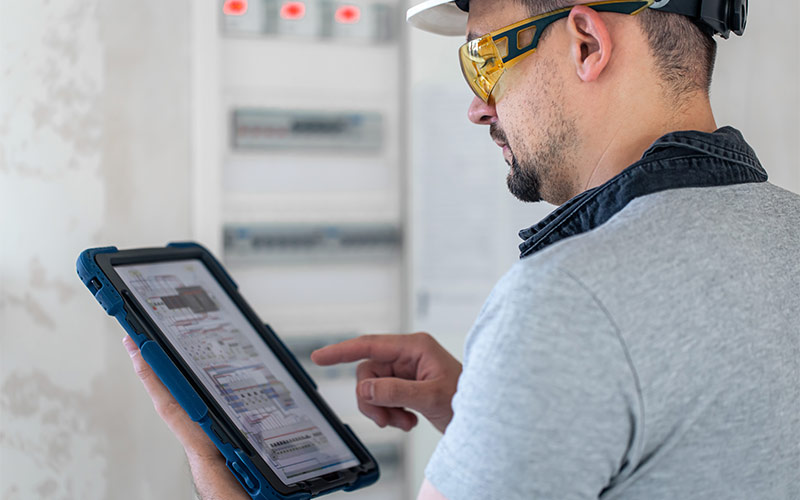
Building inspections have long been essential for ensuring the safety and compliance of structures, yet the process often demands extensive time, effort, and specialized expertise. Many property owners, managers, and inspectors are now asking: How will AI change the future of building inspections? And perhaps more importantly, can AI truly make inspections more reliable and efficient without losing the human touch?
The answer is already unfolding today. Artificial intelligence is not a distant vision but an active, evolving tool that is enhancing building inspections. From streamlining SB326 report generation service for condo balconies to expediting safety checks under SB721 report generation service for apartments, AI is transforming both the speed and the accuracy of inspections. Here’s a closer look at what the future holds.
How AI is Shaping Building Inspections Today
Artificial intelligence brings a powerful advantage to inspections by analyzing massive amounts of data faster than any human could. Drones equipped with AI can capture high-resolution images of structures, identifying cracks, corrosion, and other defects without the need for risky manual assessments. Machine learning algorithms can then evaluate these findings against thousands of historical data points to flag potential issues early.
For example, when preparing an SB326 report generation service, AI tools assist inspectors by automatically categorizing damage levels, recommending urgency levels, and generating visual documentation. This allows professionals to focus on critical judgment calls rather than getting bogged down in paperwork.
Similarly, AI is instrumental in handling SB721 report generation service needs for multifamily buildings, offering predictive maintenance insights that reduce costly emergency repairs.
Key Benefits AI Brings to Building Inspections
1. Increased Accuracy
AI-driven inspections reduce human error by consistently applying standardized criteria when evaluating structures. Sophisticated pattern recognition helps detect minor defects that may be overlooked during traditional inspections.
2. Faster Turnaround Times
Speed is critical, especially when compliance deadlines loom. AI platforms streamline report creation, allowing inspectors to deliver fully formatted, regulation-compliant reports in record time.
3. Predictive Maintenance and Risk Assessment
Rather than reacting to problems after they arise, AI empowers property owners and managers with predictive insights. Early warning systems based on data analytics help prioritize maintenance tasks before minor issues escalate.
4. Safer Inspections
AI-powered drones and sensors minimize the need for inspectors to access hazardous areas directly, improving safety without compromising thoroughness.
Practical Applications Already in Motion
Some of the most trusted inspection firms now integrate AI into everyday operations. Thermal imaging cameras with AI capabilities detect moisture intrusion behind walls, pinpointing problems invisible to the naked eye. 3D mapping tools, fueled by machine learning, create highly detailed models of balconies and facades to support SB326 and SB721 compliance.
In one notable project, a large residential complex undergoing mandatory SB721 inspections utilized AI-enhanced drones. This approach reduced inspection time by 40% and identified structural concerns that traditional methods had missed.
Challenges to Consider
While AI offers tremendous promise, it is not a complete replacement for human expertise. Technology still requires knowledgeable inspectors to validate findings, interpret nuanced situations, and ensure that recommendations meet local codes and standards. In addition, privacy concerns around drone usage and data management must be addressed with transparent policies.
Furthermore, AI models are only as good as the data they are trained on. Continuous updates and oversight are necessary to maintain high standards of performance.
What the Future Holds for AI in Building Inspections
In the coming years, AI’s role in building inspections will only deepen. Here are some trends to watch:
- Real-time monitoring: Sensors embedded in structures will provide live health updates, allowing instant assessments without needing full inspections.
- Deeper integration with compliance frameworks: AI platforms will be tailored specifically to streamline complex requirements like those in SB326 and SB721, ensuring no detail is overlooked.
- Autonomous inspections: Self-guided drones and robots will conduct routine inspections independently, uploading their findings directly into cloud-based management systems.
- Enhanced reporting platforms: Interactive reports featuring 3D models, predictive analytics, and recommended action plans will become the industry standard.
Through these innovations, AI will empower inspectors to focus more on strategic decision-making, client communication, and long-term building health rather than administrative burdens.
Actionable Tips for Adopting AI in Inspections
For those considering integrating AI into inspection processes, here are a few practical steps:
- Start small: Implement AI tools in one part of the inspection process, such as damage detection or photo analysis, before scaling up.
- Invest in training: Equip inspection teams with the skills to operate AI tools effectively and interpret outputs critically.
- Choose trustworthy solutions: Work with established providers whose systems align with industry standards and compliance requirements.
- Prioritize data security: Ensure that any AI systems comply with privacy regulations and protect client information.
Final Thoughts
The future of building inspections is undeniably intertwined with the advancement of AI. Yet the goal remains the same: delivering safer, smarter, and more reliable assessments for every building. By embracing AI thoughtfully, inspectors, property managers, and owners can ensure compliance, extend the life of structures, and safeguard investments.
For those navigating SB326 or SB721 requirements, AI-driven services offer a clear path toward faster and more accurate reporting.
If any questions arise about the future of AI in building inspections or how these innovations might help with SB326 and SB721 compliance, feel free to leave a comment below. A response will be provided as soon as possible to help guide the journey forward.
